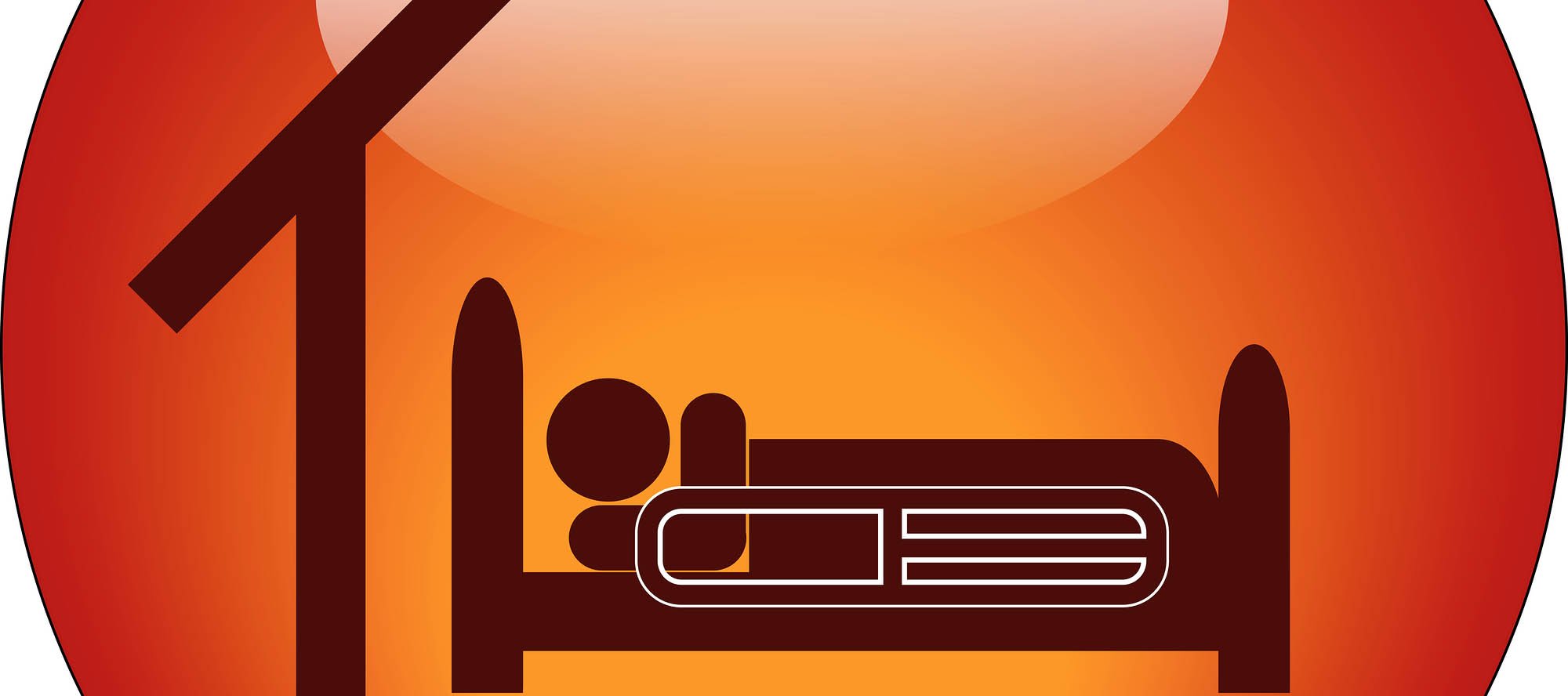
icon for a person lying in hospital bed with roof
George Winter questions whether bedside entertainment systems for patients may do more harm than good
In The Convalescent (1825), Charles Lamb (1775-1834) writes: “If there be a regal solitude, it is a sick-bed.” The patient, says Lamb, “… has nothing to think of but how to get well… makes the most of himself… Sometimes he meditates… and his bed is a very discipline of humanity and tender heart.”
And
when in 1930, ankylosing spondylitis confined the Scots poet William Soutar
(1898-1943) to bed for the rest of his life, he continued to write and set
himself — and achieved — the target of reading the Encyclopaedia Britannica.
To what
extent can today’s patients plumb those inner depths of human resourcefulness
evoked by Lamb and Soutar? One, I suggest, that’s limited to choosing between
pressing a button to flood a screen with all manner of visual diversion… or
not. Dr Humphrey Taylor had heard the clamour of things to come in 1998 when he
wrote in Ophthalmology (1998, 105: 2,169-70) that trends in
consumer education and empowerment were largely a function of “marketing-,
media-, and entertainment-driven phenomena. They will surely change consumers’
interactions with health plans, physicians and hospitals, but they may not do
much to empower most of them to make better choices or get better care.”
How
right he was, because today’s patients are indeed “consumers” of healthcare.
But the last thing that purveyors of “marketing-, media-, and
entertainment-driven phenomena” want is that consumers be allowed some peace
and quiet when they could be absorbing screen-based drivel. We now have
fancified hospital telly, and entered the age of the ‘bedside entertainment
system’ (BES). BESs exist to make money from patients and are dedicated to
disrupting the link between thought and quietude. But you won’t catch BES
companies using the word ‘consumer’, with its connotation of a non-thinking
commercial unit. Thus, one BES website reveals that “patients are actively
looking for a more modern way to pass some time while in hospital”, while
another is confident that “after all, entertained patients are happy patients
and you want to make their time in hospital as easy and carefree as it possibly
can be”.
I guess
that the authors of such nonsense would be genuinely surprised to learn that
neither all patients crave “more modern ways” to pass the time, and nor is a
patient’s happiness dependent on the high-tech equivalent of a jester in cap
and bells. On the other hand, we cannot ignore the fact that BES providers
cash-in on our self-evident craving for what Aldous Huxley referred to in his
essay on Silence (1946) as the “pre-fabricated din” of
our times.
So,
it’s timely that Assistant Nurse Manager Lindsey M Nelson provides some common
sense in ‘Turn Off the TV: Benefits of Offering Alternative Activities on
Medical-Surgical Units’ in MedSurg Nursing (2018, 27: 9-13). Nelson makes the
point that patients in medical-surgical units who are confined to their rooms
where the telly is the only activity available to them may experience
“decreased stimulation from (or interest or engagement in) recreational or
leisure activities, resulting in boredom, restlessness, and/or depression”. She
further observes that excess telly-watching and screen time are linked to sleep
disturbances, adverse psychosocial effects, “increased sedentary behaviour,
diabetes, cardiovascular and metabolic issues, and even mortality”. For
brain-enhancing, “less modern ways” than gawping at a screen, Nelson suggests
the following alternatives that a BES sales representative might regard as
daft, old-fashioned pursuits: Colouring, reading, puzzles and relaxation
techniques. They also have the advantages of being cheap, rewarding and
superior to a mind-numbing BES.
A BES
could also delay one’s departure from hospital. For example, Papaspyros et al,
writing in the European Journal of
Cardio-thoracic Surgery 34 (2008) 1,022-1,026, describe an ‘Analysis of bedside entertainment
services’ effect on post-cardiac surgery physical activity: A prospective,
randomised clinical trial’. Noting that in 2008, there were “just over 300
acute hospitals offering BES in the UK… BES includes telephone, television,
radio, Internet, gaming and e-mail”, they investigated 100 patients undergoing
elective cardiac surgery who they randomised to receive access to BES or not.
They found that those without BES were 84 per cent more likely to walk more
than those with BES, demonstrating “that the bedside entertainment systems may
have an adverse effect on post-cardiac surgery patient ambulation and may
contribute to an increase in hospital stay”.
I am
not suggesting that there is no place for screen-based entertainment in
clinical settings, or that recovery depends on patients’ rigorous engagement
with, say, the lyrical wealth of Anna Akhmatova. Indeed, television can confer
some benefits. For example, Östlund, writing in the Scandinavian Journal of Caring Sciences (2010, 24: 233-43) describes “ ‘Watching television in later life: A
deeper understanding of TV viewing in the homes of old people and in geriatric
care contexts’, and concludes that “TV viewing makes a significant contribution
to their capacity to cope with disengagement in old age and can be used as a
way of promoting communication and wellbeing in geriatric care”.
What I am
questioning is whether a BES does much to promote Lamb’s notion that “sickness
enlarges the dimensions of a man’s self to himself!”





Leave a Reply
You must be logged in to post a comment.